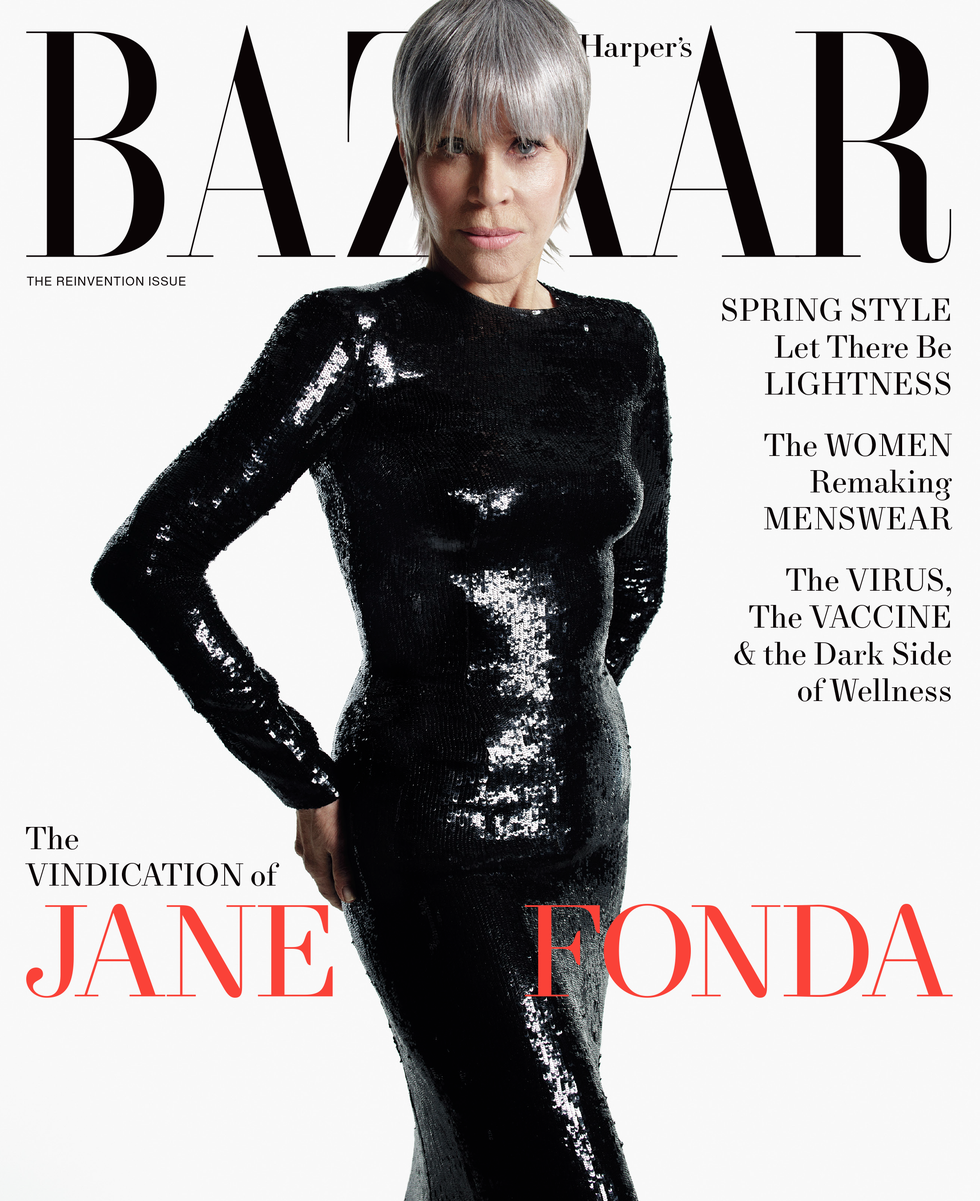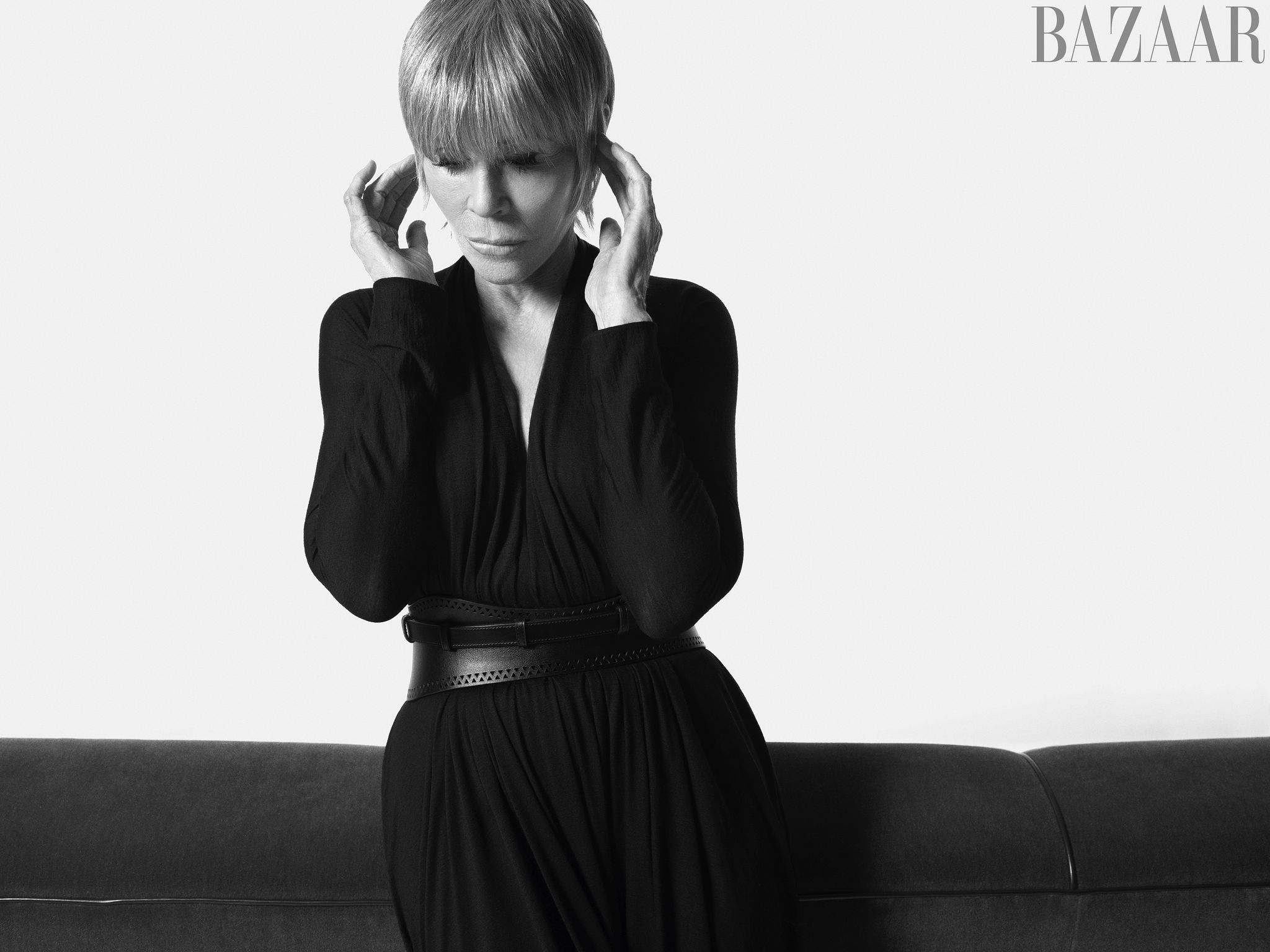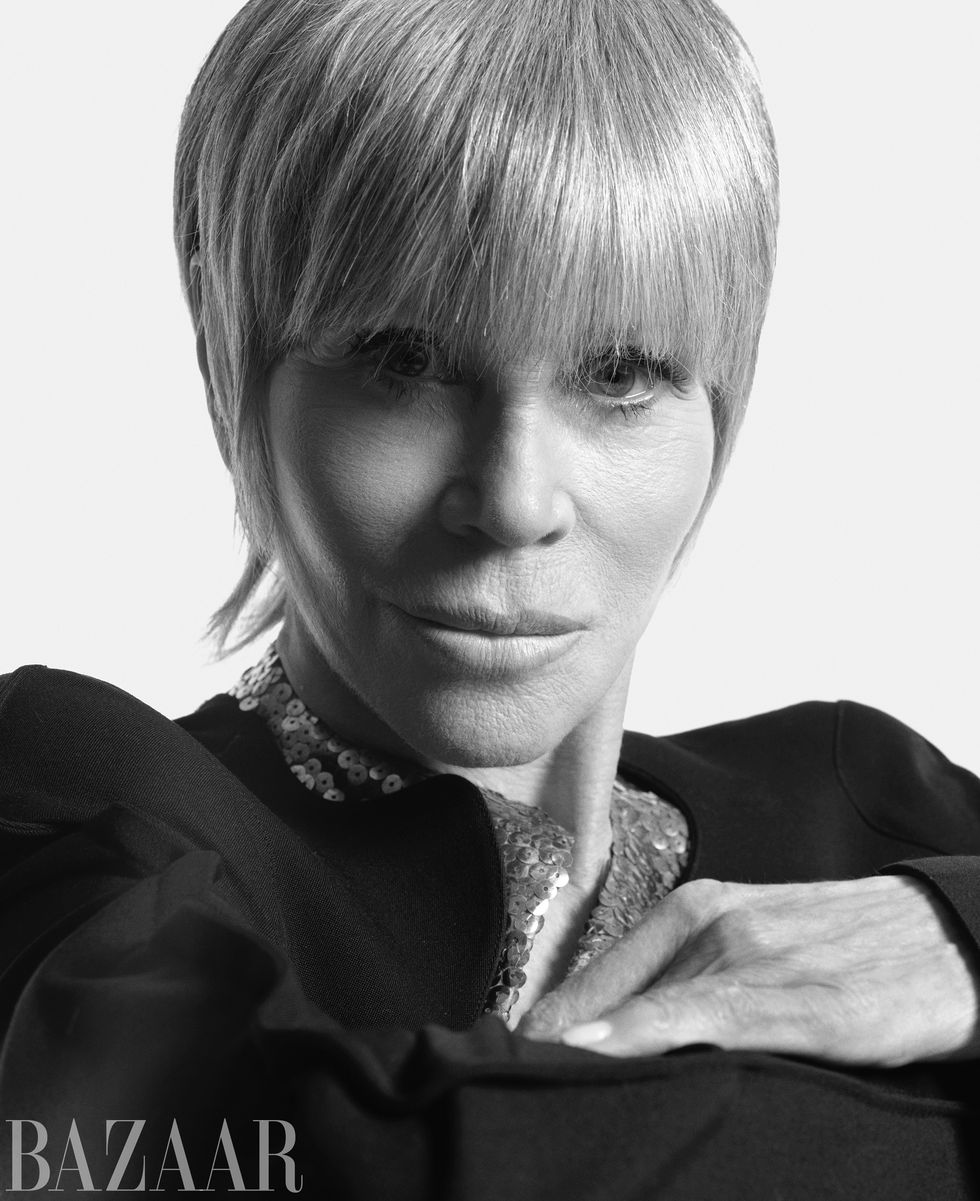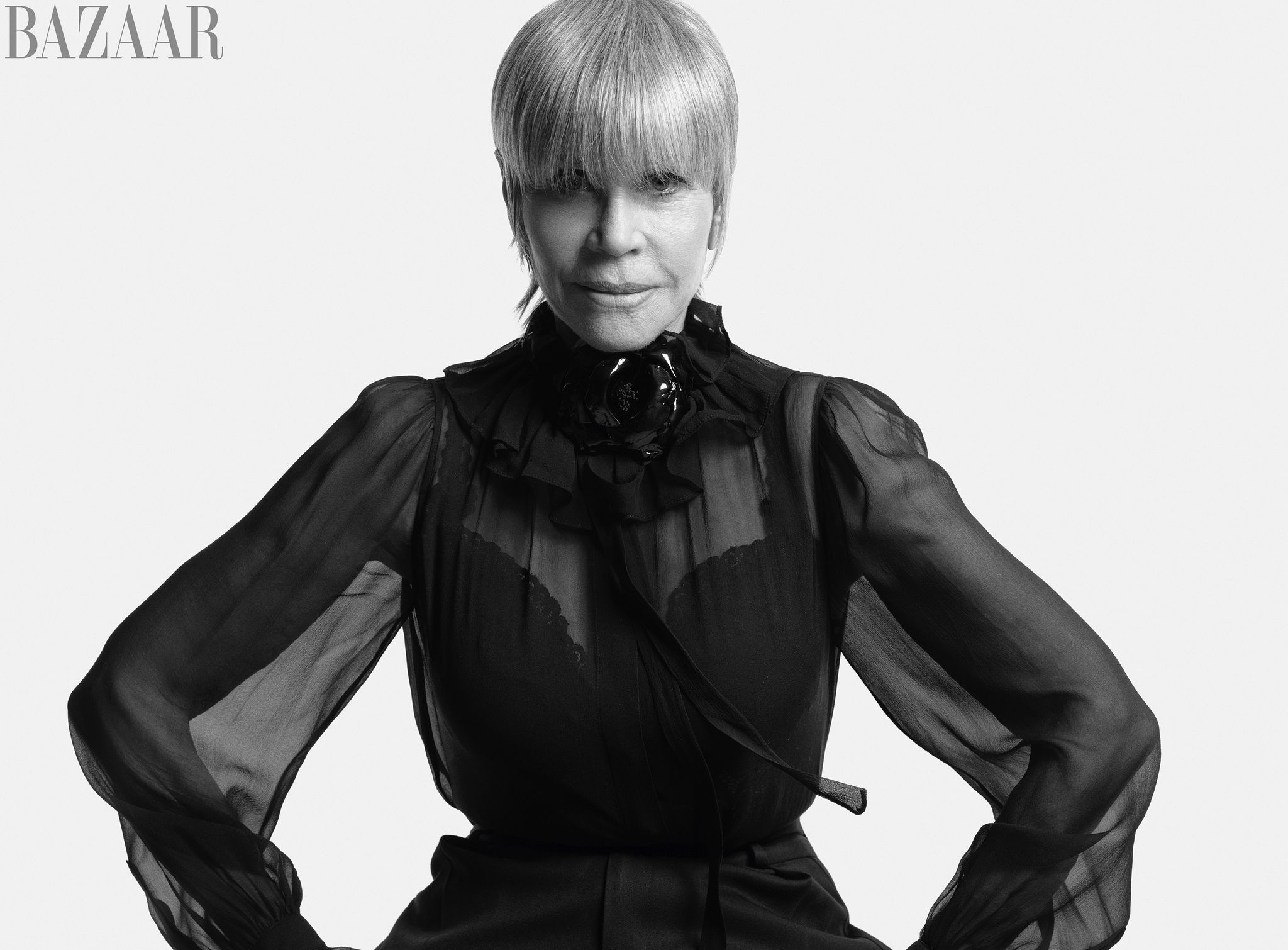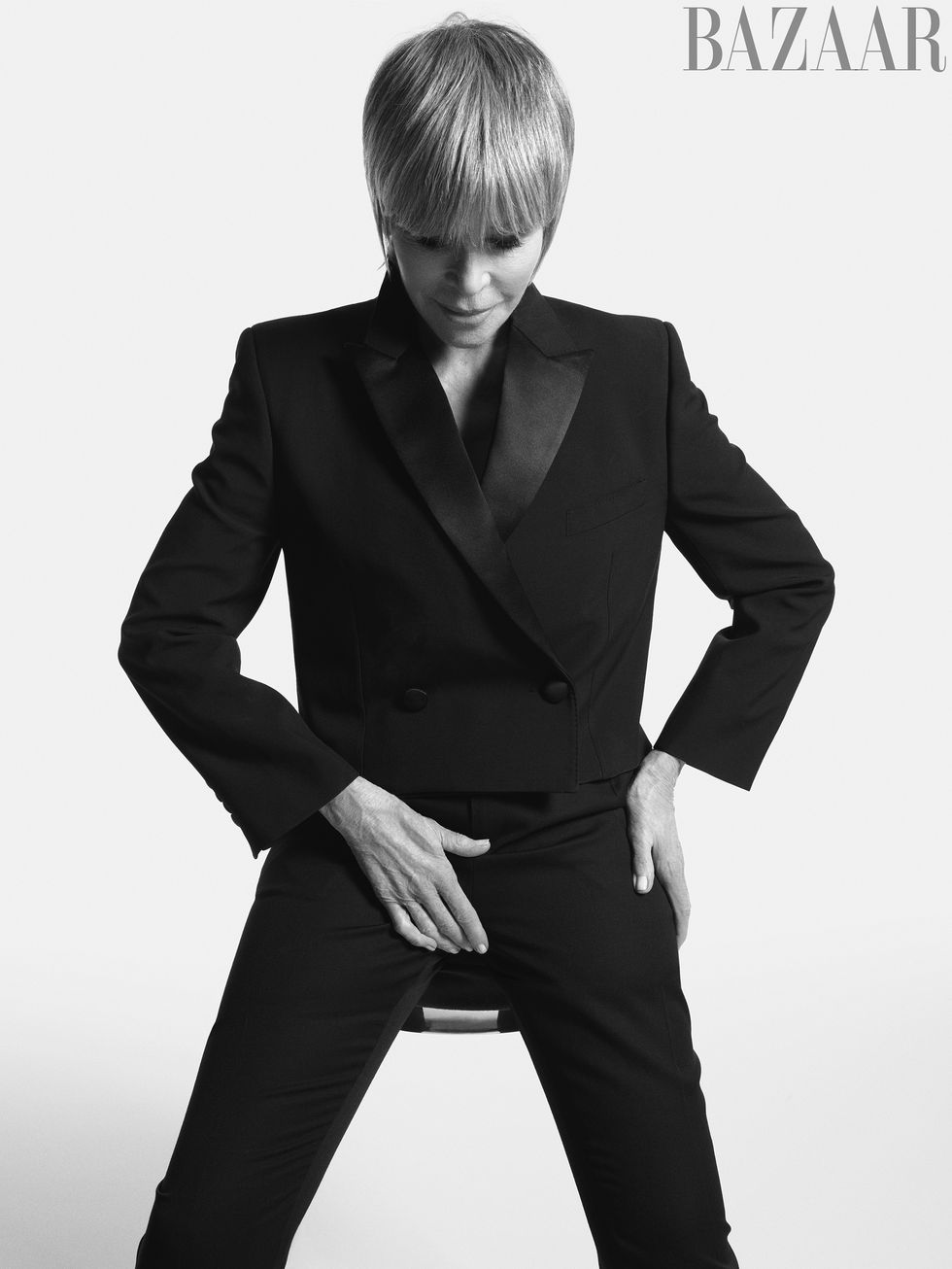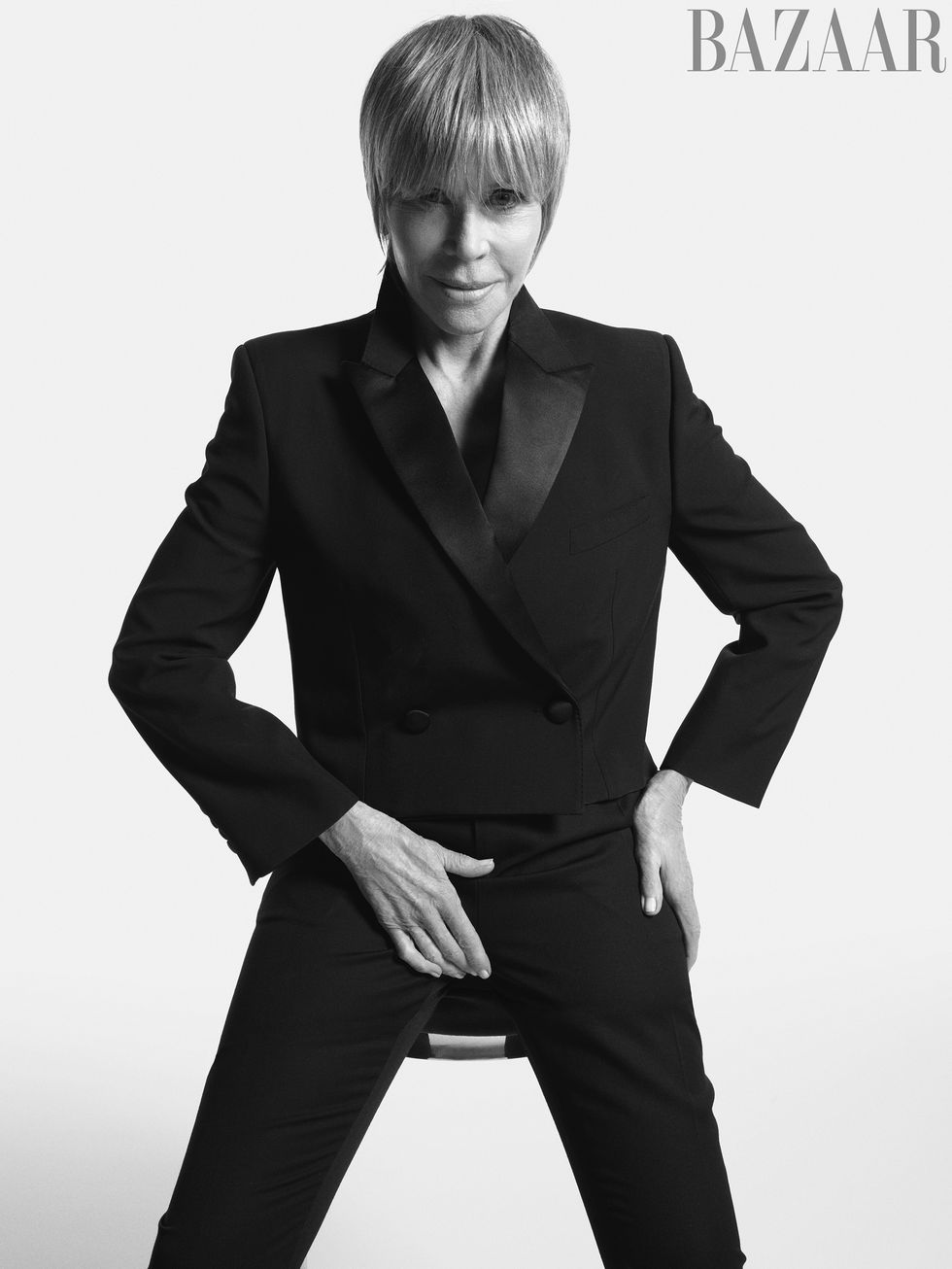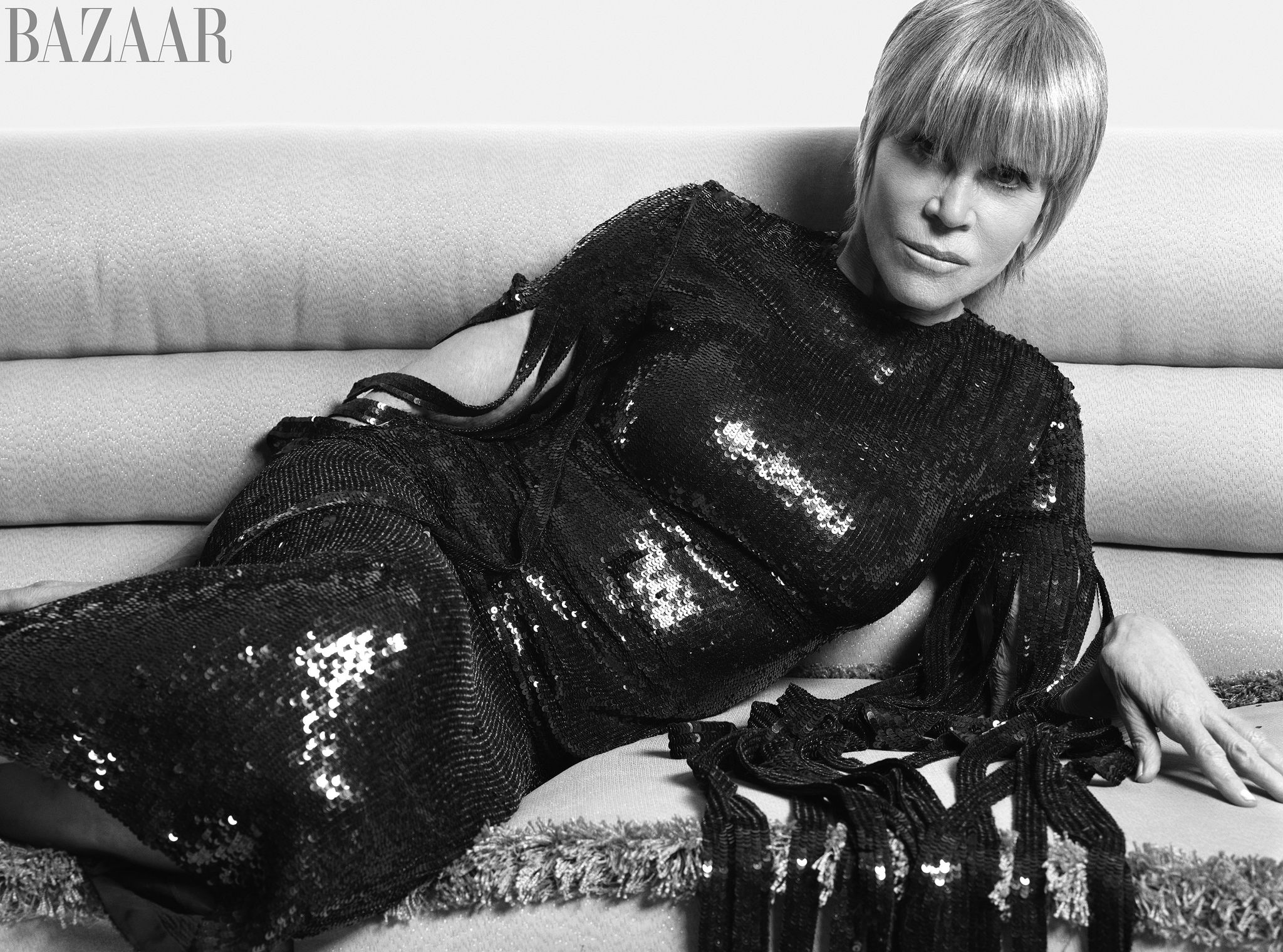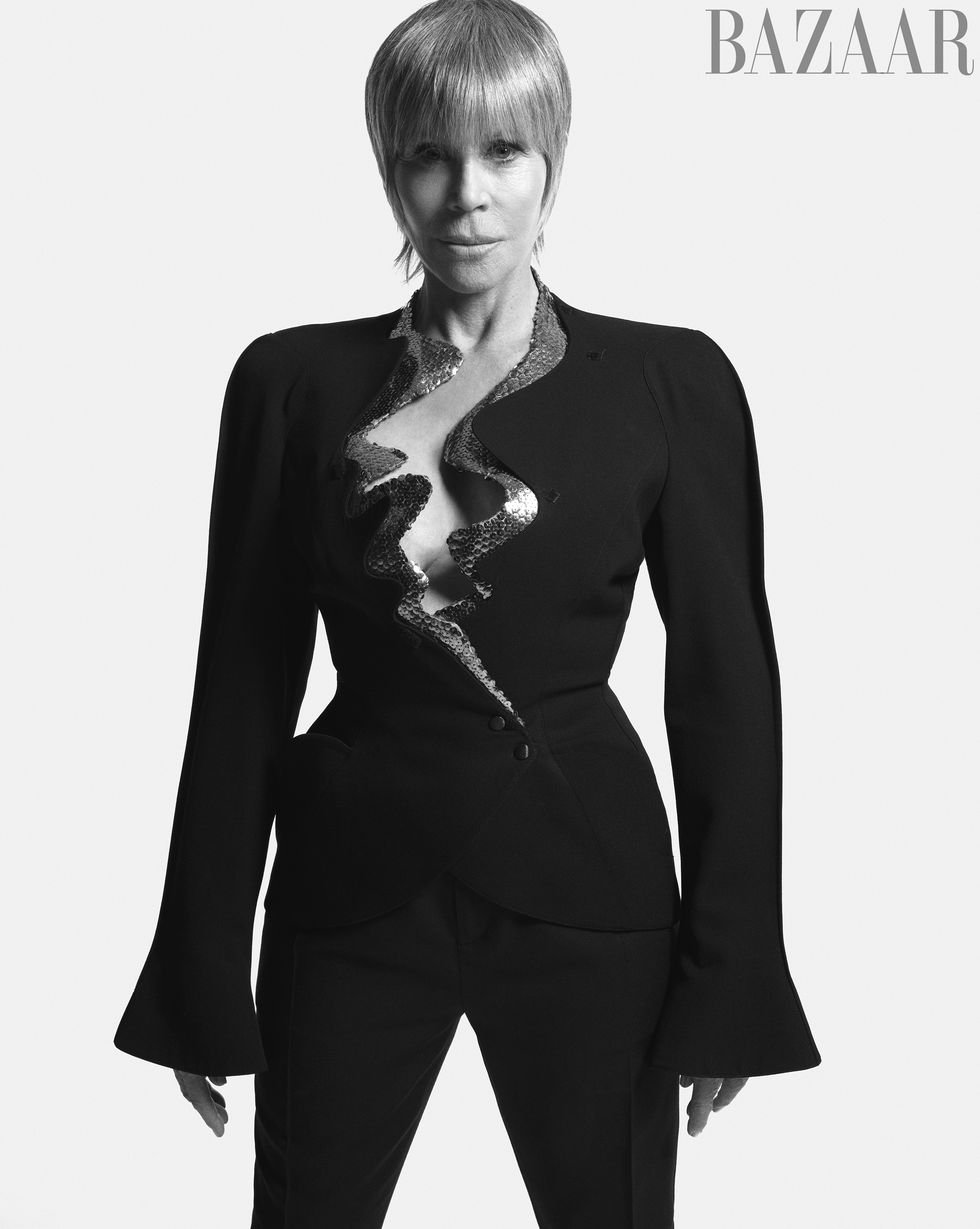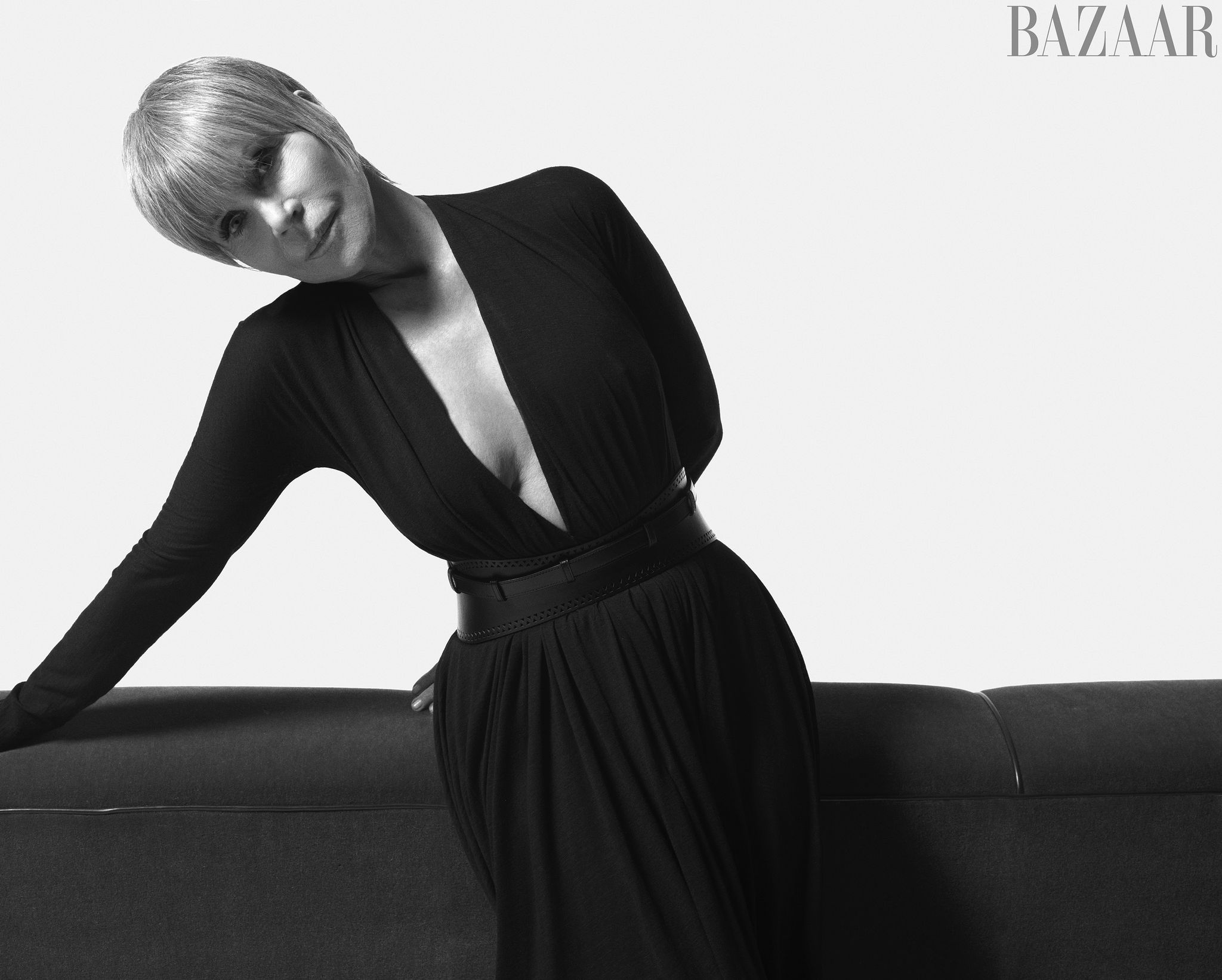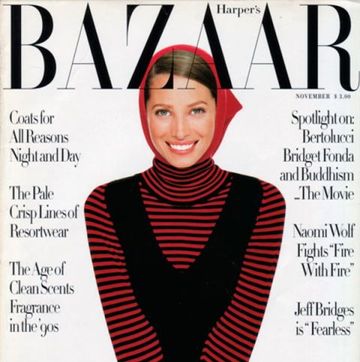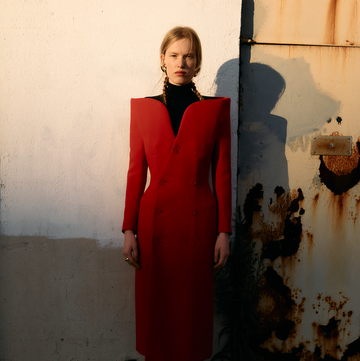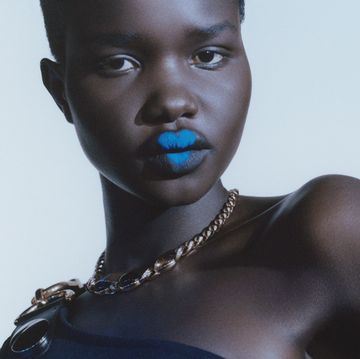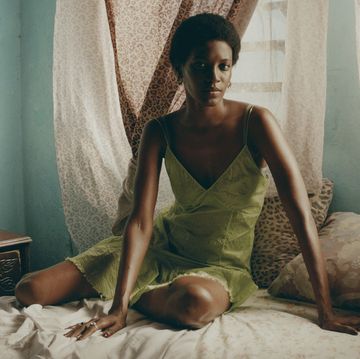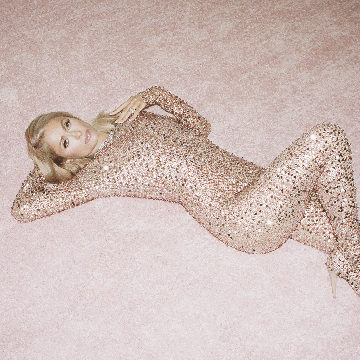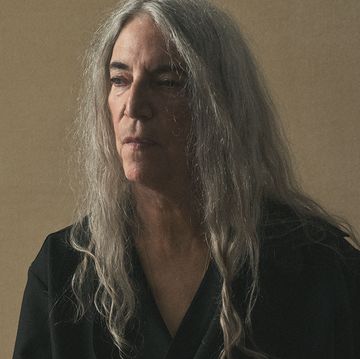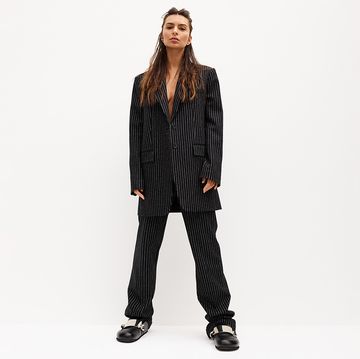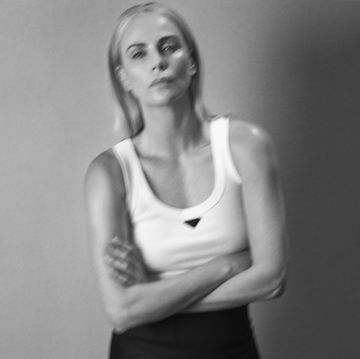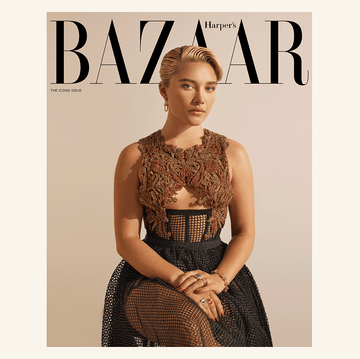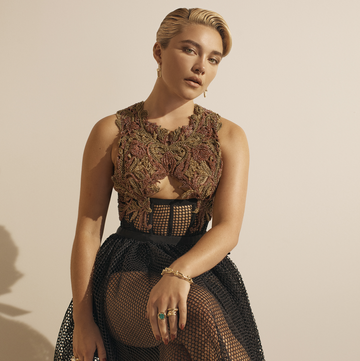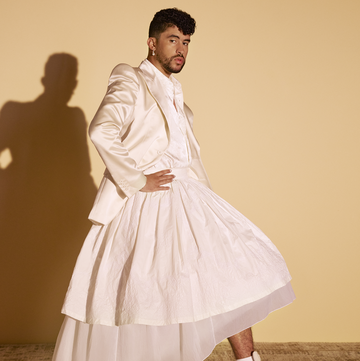In 1948, when Jane Fonda was 10 years old, she wrote a letter to her father, Henry Fonda, who was temporarily living in New York, performing on Broadway. The letter—accompanied by a drawing of butterflies—begins, “Dear Dad, I did not trace these drawings of butterflies.” Fonda, born Lady Jayne Seymour Fonda (she is distantly related to Henry VIII’s third wife), briefly mentions this anecdote in her 2005 memoir, My Life So Far, never returning to it, but letting its implication toll. “I was saying to him, ‘I have artistic ability,’ ” she tells me over Zoom one morning in February. “I could do it from my head.” Even from a young age, Fonda was spelling it out—laying claim to her inventiveness, her imagination, as if born with an urgency to make plain her point of view. She did not trace those butterflies, and she needed her dad to know.
There’s very little that can be said about Fonda that she hasn’t already said about herself. Honesty is her ... sound. Her quota for candor is without limit. Her running total of contradictions is remarkable; she has reinvented the whole concept of celebrity one decade at a time. At 83, she has lived a life wired with an antennae-like curiosity and a stamina for staying switched on. Fonda likens herself to an artesian well. “Once you hit the water source,” she tells me, “the water keeps coming. My energy doesn’t come from anybody else. It comes from inside myself.” She is the author of eight books and starred in era-defining films like They Shoot Horses, Don’t They?, Klute, Coming Home, The China Syndrome, and 9 to 5—projects that ran apace with or were directly tied into Fonda’s work as an activist, feminist, and ardent oppositionist to the Vietnam War. She is a fitness seer who launched an entire workout video industry, in order, she later revealed, to fund her political activism. She has been married three times (to director Roger Vadim, activist Tom Hayden, media mogul Ted Turner), and divorced three times. She has won two Oscars and received the Cecil B. deMille Award at this year’s Golden Globes. She also made a seamless transition to television, and for the past six years she has starred, opposite her dear friend Lily Tomlin, in Netflix’s beloved Grace and Frankie. A seventh season is in the works.
Nowadays, Fonda’s central preoccupation is the climate crisis. In October 2019, she moved to Washington, D.C., and launched, with Greenpeace, Fire Drill Fridays. For 14 consecutive Fridays, Fonda and other activists held rallies and participated in acts of civil disobedience on Capitol Hill (she was arrested five times). In 2020, after having moved its rallies and other programs online in March, Fire Drill Fridays attracted more than nine million viewers across all platforms. Fonda’s latest book, What Can I Do?, is not just a reflection on the crisis but an active deliberation on what needs to be accomplished in the next 10 years. A to-do list, she writes. Not a wish list.
Durga Chew-Bose: Who was the person or group that cracked open your world, refocusing your attention on the climate crisis?
Jane Fonda: As is often the case in my life, it was Naomi Klein. Her book On Fire: The (Burning) Case for a Green New Deal—like her books have always done—has sort of shaken me open in some ways. But all my life it’s been reading a book that has set me off on a new trajectory. I was saying, “What can I do?” And I was very depressed because I knew that I needed to do more, and I just didn’t know what. Naomi wrote the science so clearly. And she explained the Green New Deal to me.
DCB: And then you moved to Washington, D.C., for four or so months.
JF: At the suggestion of Annie Leonard—she runs Greenpeace USA—and is a major figure in my life. She insisted that, before we did anything, we meet with all of the major environmental groups and the youth climate leaders. And by the time that was finished there was no question in my mind that we’re not going to tackle the climate issue if we don’t simultaneously tackle economic and racial inequality.
DCB: When Representative Alexandria Ocasio-Cortez joined your Fire Drill in October of last year, you heartily gave her a thumbs-up when she spoke of accountability and how it’s not enough to simply elect representatives to office. What does accountability mean as it relates to your expectation of [Joe] Biden’s presidency?
JF: Well, people of color and young people put him in office. There’s no question. And he made promises. So we have to hold his feet to the fire and make sure that he follows through. And so far it’s looking good, although—let me just give you an example of where there’s a problem. He has [revoked the permit for] the Keystone XL pipeline. But why didn’t he at the same time say, “And we’re putting in motion a just transition,” so that all those workers are not going to be floating around without a job? It would’ve been so easy for him. He’s a big union guy, Biden. And he didn’t do it. And we don’t understand why. So now we’re pushing.
DCB: Hilton Als has described your tone as “imploring.” Meryl Streep once characterized your alertness as “feral.” The combination of both powers—taking notice and then appealing to others—is time-tested with you, no?
JF: I always feel that I’ve got to pay attention so I can learn. And I try to have friends who can teach me. I’m a student. I’m a generic kind of person. I’m very observant. I receive it. And then I become the megaphone. I don’t invent things. You have to know where your strengths are. I’m derivative; I’m not original.
DCB: It’s funny to hear you say you aren’t original.
JF: I’m original as a character but not as a thinker. Although, at my advanced age, I can sort of put things together now that I couldn’t before and say, “Oh. Okay.” I always feel in a room of people that I’m the youngest and the least experienced. And I know that other people view me as the opposite, and that makes me uncomfortable.
DCB: You’ve written about how you felt that your father, in his older years, grew more conservative in his views of the world. And I think that’s an arc that’s quite natural for a lot of people .
JF: For men. Women are the opposite. I’m generalizing, but women tend to get more robust as they get older and men get more conservative. Ted Turner said to me, “People shouldn’t change after 60.” And I said, “Then we’re in trouble.”
DCB: How has your definition of power changed over the years?
JF: You know what changed my definition of power? Going to North Vietnam [in 1972]. Going to a country that was not industrialized, where most of the people were peasants and fishermen and -women. They didn’t even have heavy equipment to fill in bomb holes and stuff, and we couldn’t defeat them. That taught me that power has to come from inside. It has to come from knowing who you are, why you’re on earth, what is the meaning of your life. That’s power. If it’s all about armor, possessions, and weapons, that’s not power. That’s other things. It’s the Vietnamese who taught me about power, and I’m forever grateful. And it helped me understand what to do with my third act, because third acts are scary. It’s not the getting old part. It’s the finiteness of third acts.
DCB: You’ve documented a lot. And you have been documented a lot. I was watching a speech you gave , and you said that around your 60th birthday you asked your daughter [Vanessa Vadim] if she had any ideas for how you might document your life in a short film, and she said something like, “Just ask a chameleon to walk across the screen, back and forth.”
JF: That came from a place of hostility, believe me.
DCB: Can you talk more about your chameleonic quality?
JF: Part of the reason I get into a relationship with a man is because I feel that he can take me down a new path. I’m attracted to people who can teach me things and whose lives are different from mine, and so I give myself over to that. First of all, I want to please him. That’s a problem. When I married Ted—I mean, marrying Ted is like marrying 15 people—you have to learn how to hunt, so I did. You have to learn how to fly-fish, so I did. He liked me to dress sexy, so I did. And so forth. I wanted to. Why be with Ted Turner if you’re not going to allow yourself to be absorbed in his reality and learn from it? And I’m glad I did.
DCB: How has your definition of intimacy changed?
JF: Should I tell you this? I don’t know. Okay. I’ll be truthful. One of the painful things that I’ve realized by 80—I don’t even know how old I am—83, and single now. What I’ve had to really think about is that I’m not really capable [of intimacy]. It’s not them. It’s me. If a guy had come along and said, “Come on, Fonda, show up,” I would have run away scared. I was attracted to men who never would have done that to me because they couldn’t necessarily show up themselves. I didn’t know that at the time, but now I know. I don’t think I can do anything about it now, but that’s the truth, as Lily [Tomlin] would say. That’s the truth.
DCB: Speaking of Lily and your show, Grace and Frankie, how do you like TV?
JF: I was one of those movie people who, for a long time, was snobbish about TV. Aaron Sorkin offered me this ongoing role in The Newsroom, and I realized, “This is my future.” I’m old. Television is more forgiving for older women, and so I said, “Okay, I’m going to start paying attention.” So I started watching TV, and now I don’t know if I’m going to go back into movie theaters. I just love television. I just love discovering Michaela Coel, for example.
DCB: I was going to ask you about Michaela Coel. You posted on your Instagram account that you watched I May Destroy You not once or twice but three times.
JF: And I never do that. She’s a true artist. An observer of life. I mean, the way that she filmed the last episode where she did so many versions of her with the rapist, I just had to keep watching it because I would be thinking about a scene and [go], “Wait, wait. Did I make a mistake?” Whoa. Michaela’s got a sense of the truth. It’s somatic.
DCB: Yes, you feel it. And yet she didn’t receive any Golden Globe nominations for her work.
JF: I don’t understand it. They should have recognized her. With the Emmys, if I have anything to do with it … . There’s very little as important as what Michaela’s done.
DCB: Have you ever wanted to direct?
JF: No.
DCB: Why not?
JF: I’m not a good leader. I look like a leader, but I’m not. I’m very uncomfortable being out front. What I love about movie-making or television is the collaborative part of it, people working together. I never liked to be the head. I freeze.
DCB: Has anyone ever asked you to direct?
JF: [Robert] Redford always used to say, “Why don’t you?” And I just never could explain to him why I’m not interested. If I’m one of a pack, then all of my juices begin to flow. And I seem like a leader because I have a lot of ideas, but I’m not the ultimate person responsible. I just love working and then coming home and having a martini or getting in a hot bath.
DCB: Many actors talk about the roles they take as a negotiation. Like, one for me, one for them: “If I do this one movie, then I can do my passion project.” What strikes me about your career is, you’ve never done that. You’ve really wanted to do the roles that you do.
JF: I’ve noticed that Meryl, she’ll do two films a year: one where she doesn’t particularly look good but she’s playing a character, and then one where she’ll look glamorous. For the first part of my career, I just did whatever people told me to do because it never occurred to me that I had a choice. I was always surprised that anybody offered me anything, and I did movies that I didn’t like at all.
DCB: What was it like working with Katharine Hepburn?
JF: What an interesting woman. I mean, we were not friends. She was really competitive. She really thought that I was out to win more Academy Awards than she was, and when she won for On Golden Pond I called to congratulate her, and she said, “You’ll never catch me now.” What I loved about her was that she took the job of being an elder very seriously. She was intentional about teaching me and talking to me, including giving me line readings, and I found that just wonderful. She did not like me. She told … not Griffin Dunne. No. Who’s the other writer? John?
DCB: John Gregory Dunne?
JF: I don’t know. Somebody like that. A gossip kind of—
DCB: Dominick Dunne.
JF: Dominick Dunne. She once told Dominick Dunne that I didn’t have a soul.
DCB: In 1972, when you won your Oscar for Klute, you took your father’s advice, accepted your statue, and said, “There’s a great deal to say, and I’m not going to say it tonight.”
JF: Brevity was important in that moment. It would have been a huge mistake to talk about the war. I didn’t need to. I’m really grateful that I didn’t.
DCB: Did you feel a sense of comradery from your colleagues in the industry at the time?
JF: I never saw them. I was an outlier. I was not part of Hollywood. I’ve dipped my foot halfway up my calf into the world of Hollywood. I know what it looks like. I know what it feels like. I know how it talks. I know how the parties are, and I’ve known that from when I was quite young, and it’s not super comfortable for me.
DCB: What about your friendships now, with the women in your life? When you told them you were moving to D.C., for instance?
JF: Oh, yeah. They’re gung-ho gals. Like Catherine Keener and Rosanna Arquette. They were helping me. Where to poop became a big issue for me because I assumed that I was going to be there with a bivy sack and a tent. With all the camping I’ve done and blizzards and on the top of mountains and stuff, I’ve never done it in a city. And I didn’t know about pooping. So when they told me that it was illegal to camp out that way now, I was relieved when we decided [Fire Drill] would be every Friday.
DCB: How has your relationship to motherhood changed over the years?
JF: I think about it every day. It’s the one main thing about my past that I think about almost every day. And I’ll tell you one of the things that’s keying it off is watching my son [Troy Garity], who is 47. They just had their first child, and he is about a year and a half. And when I watch my son and his wife, Simone, parent, I’m awestruck. It puts into such stark relief for me, what I didn’t do. I don’t think I’ve said this to him, so I feel a little weird, but anyway that’s the reality. Watching my son be a parent, I think, “God, I just wish I had done that.” And then I realize, if I had done that I would not have become who I became. There has to be an in-between way, but I’ve never been an in-between kind of person. I was too wrapped up in me. I was too wrapped up in becoming an activist. There is something that remains like a sword in my heart. It was 1970, I got into a station wagon that was filled with sleeping bags, and a friend of mine from France and I were going to drive across the United States. I got arrested, I think four times, at various military bases and on an Indian reservation, and so forth. The first place I was arrested was Fort Lewis, for passing out copies of the Uniform Code of Military Justice. And with me was a young mother; her name was Barbara Garson. She had just had a baby girl, and she was a playwright. And she said, “Why don’t you have your baby with you?” And I felt so guilty and so bad. I didn’t dare tell her that my baby was at home with a governess. She had her baby right there on her hip, and she was being arrested.
DCB: You’ve written and spoken about your regrets. Do regrets play a determining role in how you live?
JF: Well, the lack of intimacy. I’ve kind of come to terms with that. I don’t want to be in a relationship, a sexual relationship, again. I don’t have that desire. Do I fantasize? Yes, here’s my fantasy. I’ll just put it out there. That I meet a professor or a researcher, somebody in that line who is really capable of loving, of cherishing a woman, so that I could test myself and see if I could show up. I think maybe now I could, but the problem is that, like a man, I would want a younger man. Isn’t that awful? It’s a thing about skin. I would want a younger man, and I’m too vain.
DCB: About skin? What do you mean?
JF: I’m very grateful that I don’t have to get naked in front of anybody again ever, even in candlelight. And if I did, I mean in my fantasy, the man is younger than me, so that would make it even harder. I’m being perfectly honest. I wish that wasn’t true. But, you know, [the way] I was raised, the man I adored was my dad. And, man, you had to look a certain way, and I never could. I’ve never been able to get that out of my body. It’s just part of me.
Creative Director: Laura Genninger; Hair: Adir Abergel; Makeup: David De Leon; Manicure: Jackie Nguyen; Production: North Six; Set Design: Happy Massee
